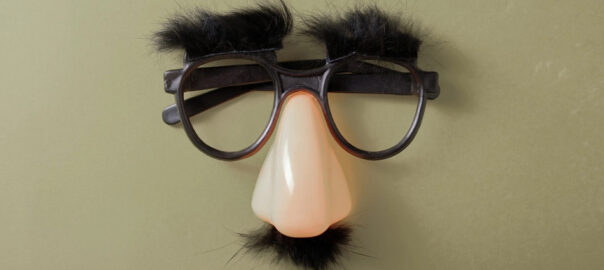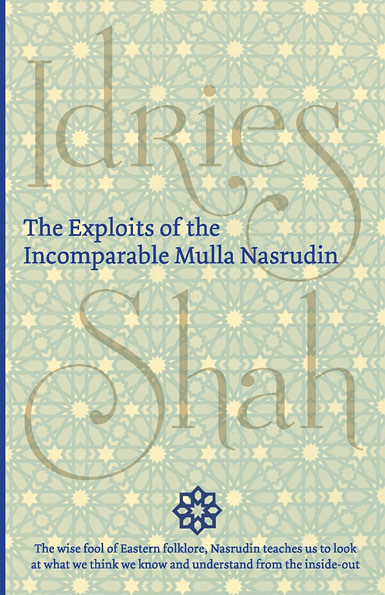
A Funny Thing Happened on the Way to Enlightenment
Andrew Boden | March 21, 2023
“The arrival of a good clown exercises more beneficial influence upon the health of a town than twenty asses laden with drugs.” —Thomas Sydenham, 17th century physician
I have an irreverent friend, older than me by a generation. His wry perspective on the world is often unique, hilarious and socially illuminating. I never know what he’s going to say or when. An example: after neurosurgery that saved my life, my friend strode into my hospital room, glanced down at me in my bed and said in a loud voice to everyone gathered there, “Some people will do anything to avoid a dinner invitation!” As much as I could, I laughed. I certainly felt the heavy mood in the room lighten and my spirit lighten, too.
There are good reasons I felt that way. In Mind and Body Health Handbook authors David Sobel and Robert Ornstein describe the demonstrated health benefits of humor, which include raising pain thresholds, reducing stress and helping our immune responses. Sobel and Ornstein go on to prescribe various ways that you can increase the amount of humor in your life. In fact, their whole chapter on humor is a bit of a comedy routine in itself. One of their suggestions is to keep around a pair of Groucho Marx glasses to wear when you feel that you’re taking yourself too seriously to help give yourself a sense of perspective.
It’s no laughing matter. I mean, it is—but in a very helpful-learn-about-your-self sense, it isn’t. Afghan author, Idries Shah, renowned for his collections of rollicking Mulla Nasrudin jokes and tales from the Land of Fools, dedicated an entire book to the subject, entitled Special Illumination: The Sufi Use of Humour. Shah underscores not only how humor can be used as a “shock-applier and a tension releaser and an indicator of false situations,” but also, in Sufi usage, as a means to help tell the false from the genuine mystic. It’s the indoctrinating leader who is very likely to lack the inner flexibility that comes with cultivating a humorous perspective on the world and one’s selves. Try to picture cult leaders such as Jim Jones or a Reverend Moon voluntarily wearing Groucho glasses and you’ll see what Shah means.
Shah does make very clear, however, that he’s writing about a very specialized use of humor. Humor not just to get a chuckle or a belly laugh, but rather to help us momentarily see something about ourselves or a situation that impedes our ability to have certain perceptual experiences. Special Illumination goes on demonstrate through jokes and hilarious stories, just how this process operates. An example:
Nasrudin was sitting at a café table gazing at two men by a hole in the road.
“What are you thinking, Mulla?” asked a passerby.
“How lazy people are. I have been sitting here for four hours, and I’ve never taken my eyes off those men. Can you believe that during all that time, neither of them has done any work?” (1)
Reading Special Illumination, I grew astonished at the many ways humor can be used as an inner tool. Narrow-minded attitudes, for example, towards religious life; obsessions, being unaware of one’s motivations, can all be, not only elucidated, but accepted by the perpetrators through humor.
It’s the incongruity often inherent in the joke that Shah encourages us to think about. He writes in Knowing How to Know:
First consider the little-recognised fact that exposure to deliberate incongruity enables one to become used to new and unfamiliar things rapidly. New things often seem incongruous, however important they ultimately prove to be. The capacity to see beyond incongruity can be equal to the ability to adjust. Second, realise that incongruity, if you can become accustomed to encountering it, may stimulate your inner senses, and help them to work on a higher level. Most people do not allow themselves to face incongruity when it appears at random in their lives. They avoid it and thus rob themselves of the stimulating effect which it can have.
My friend’s incongruous joke helped me realize just how much my friends, family and I were in the grips of social convention and expectation. As if we’d been handed a film script, we were expected to conform to certain roles: me to play the part of the patient who’d just had a brush with death; and my friends and family to play the parts of my relieved supporters (assuming, of course, that they were all relieved that I lived…). My friend’s joke not only upturned this script, but revealed there was in fact one in use. His joke also showed that there is a sense in which we’d unconsciously agreed to play our parts, rather than choose them over perhaps other more important roles. There was a lot less freedom in how we thought and behaved in my hospital room than we might have assumed.
Back to Ornstein and Sobel again and humor as an antidote to taking ourselves too seriously. One of the dangers of learning something new is that we can grow conceited and self-important. Our insights into ourselves, for example, can prompt us to think that we’re better than others, since we have an insight that they don’t (or that we think that they don’t). The snare that arrogance and self-conceit can be is a dynamic that Shah also addresses in numerous passages and jokes as well: get the joke, experience the insight, but don’t let it go to your head.
Fortunately, when I came out of the hospital with my insight into my friend’s humor, I had my young nieces to help me with any lingering arrogance.
When I went to visit them a few weeks after my operation, my sister-in-law explained to her three daughters that I’d been in the hospital for neurosurgery.
“What’s neurosurgery?” they asked.
“Well, your uncle had an operation on his brain.”
My nieces howled, “We always thought that there was something wrong with Uncle Andrew!”
***
(1) Shah’s other Mulla Nasrudin tales, collected in multiple volumes, are often a brilliant illustration of the Sufi’s instrumental use of humor.
Andrew Boden is a writer and novelist based in Vancouver, British Columbia, Canada. He is the author of The Secret History of My Hometown and co-editor of Hidden Lives: True Stories from People Who Live with Mental Illness.
Recent Blogs
- Our Subpersonalities and Many-Sided Selves
- An Old Story About Metaphysics
- The Conditioning Machines in Our Back Pockets
- Out on a Limb: The Danger of our Innate Shortsightedness
- Edward T. Hall: Culture Below the Radar
- The Half Brain Method
- 'He Who Tastes Knows': Contemporary Sufi Studies and the work of Idries Shah
- "They Saw a Game"
- A Funny Thing Happened on the Way to Enlightenment
- Finding the Right Way Home
- Time and Self
- Escaping the Either/Or Thinking Trap
- Looking Up, Looking Out
- Conditioning and the Gendered Brain
- New World, Same Mind?
- One Small Word
- Meaning: The Enduring Gift to Spirit
- Beyond East and West: Human Nature and World Politics
- Forest Smarts: A Part of or Apart From?
- How to Improve Group Decision-Making
- We Know More Than We Think We Do
- How Deep Can a Story Go?
- Lost and Found: An Encounter with the Intuitive Mind
- The Devil’s Tuning Fork
- Welcome to The Human Journey Blog

